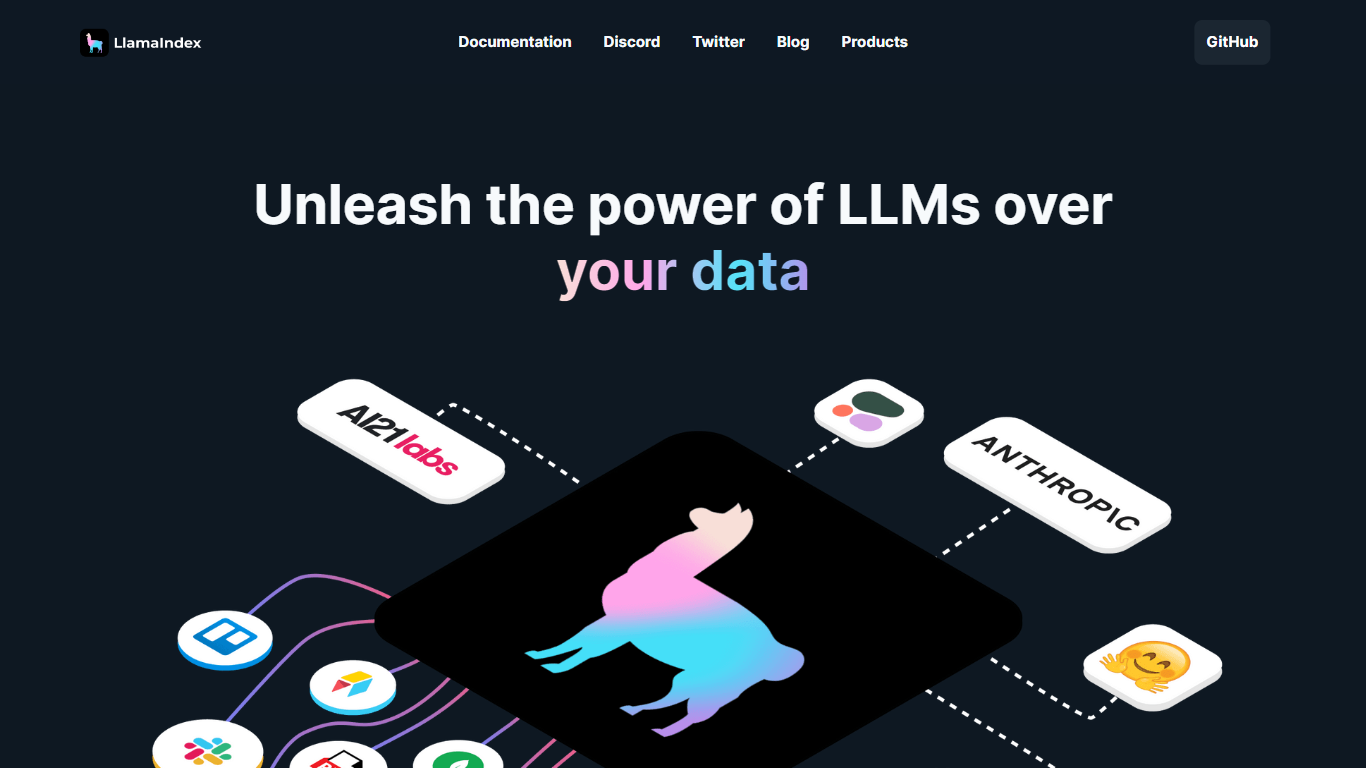XLNet vs LlamaIndex
In the contest of XLNet vs LlamaIndex, which AI Large Language Model (LLM) tool is the champion? We evaluate pricing, alternatives, upvotes, features, reviews, and more.
If you had to choose between XLNet and LlamaIndex, which one would you go for?
When we examine XLNet and LlamaIndex, both of which are AI-enabled large language model (llm) tools, what unique characteristics do we discover? Interestingly, both tools have managed to secure the same number of upvotes. Since other aitools.fyi users could decide the winner, the ball is in your court now to cast your vote and help us determine the winner.
You don't agree with the result? Cast your vote to help us decide!
XLNet

What is XLNet?
XLNet is a ground-breaking unsupervised language pretraining approach developed by researchers, including Zhilin Yang and Zihang Dai. It introduces a Generalized Autoregressive Pretraining method that allows for state-of-the-art performance on various language understanding tasks. As an improvement over its predecessor, BERT, XLNet incorporates the Transformer-XL architecture, which is particularly adept at handling long-range dependencies in text. This repository, managed by Zihang Dai on GitHub, offers access to the XLNet model, with supporting code and documentation for researchers and AI practitioners to utilize and potentially contribute to the ongoing progress in language models.
LlamaIndex

What is LlamaIndex?
LlamaIndex presents a seamless and powerful data framework designed for the integration and utilization of custom data sources within large language models (LLMs). This innovative framework makes it incredibly convenient to connect various forms of data, including APIs, PDFs, documents, and SQL databases, ensuring they are readily accessible for LLM applications. Whether you're a developer looking to get started easily on GitHub or an enterprise searching for a managed service, LlamaIndex's flexibility caters to your needs. Highlighting essential features like data ingestion, indexing, and a versatile query interface, LlamaIndex empowers you to create robust end-user applications, from document Q&A systems to chatbots, knowledge agents, and analytics tools. If your goal is to bring the dynamic capabilities of LLMs to your data, LlamaIndex is the tool that bridges the gap with efficiency and ease.
XLNet Upvotes
LlamaIndex Upvotes
XLNet Top Features
Generalized Autoregressive Pretraining: Leverages an advanced method for unsupervised language representation learning.
Transformer-XL Backbone: Utilizes this architecture for enhanced handling of long-context tasks.
State-Of-The-Art Results: Achieves leading performance across numerous language understanding benchmarks.
Versatile Application: Applicable to tasks including question answering and sentiment analysis.
Active Repository: Allows for community contributions and development, fostering ongoing improvements.
LlamaIndex Top Features
Data Ingestion: Enable integration with various data formats for use with LLM applications.
Data Indexing: Store and index data for assorted use cases including integration with vector stores and database providers.
Query Interface: Offer a query interface for input prompts over data delivering knowledge-augmented responses.
End-User Application Development: Tools to build powerful applications such as chatbots knowledge agents and structured analytics.
Flexible Data Integration: Support for unstructured structured and semi-structured data sources.
XLNet Category
- Large Language Model (LLM)
LlamaIndex Category
- Large Language Model (LLM)
XLNet Pricing Type
- Freemium
LlamaIndex Pricing Type
- Freemium
